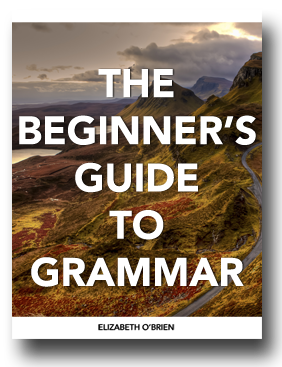📘 Download your free grammar guide here. 📘
📘 Download your free grammar guide here. 📘
Past Progressive Verbs/Past Continuous Verbs
Past Progressive Verbs/Past Continuous Verbs
- Home
- Verb Tenses
- Past Progressive/Past Continuous
Past progressive verbs are also called past continuous verbs. They show continuing action in the past.
The children were reading.
I was practicing the piano when you came.
What's a progressive verb?
Every single verb has three simple tenses and three perfect tenses, and each of those tenses can be made into a progressive/continuous form.
Progressive verbs are not another verb tense, but are more like an extra form of each of the tenses.
They show that the verb is still happening.
Depending on whether you like to call them progressive or continuous, you can use these two ways to remember what they mean:
The action is continuing to happen, so it is a continuous verb.
The action is still in progress, so it is a progressive verb.
All progressive verbs are formed with a form of the verb be (am, is, are, was, were, been, being) and the verb's present participle.
Present participles are the forms of the verb that end in ing.
Forming Past Progressive
There is a very easy recipe for making these verb forms.
were/was + present participle
The present participle is the form of the verb that ends in ing
| were/was | + Present Participle |  |
Past Progressive |
| was | learning |  |
I was learning. |
| were | learning |  |
We were learning. |
| was | winning |  |
Mark was winning. |
| were | winning |  |
The boys were winning. |
| was | graduating |  |
My sister was graduating. |
| were | graduating |  |
The students were graduating. |
| was | practicing |  |
The singer was practicing. |
| were | practicing |  |
The choirs were practicing. |
Was or Were?
Are you wondering when you should use was and when you should use were? That is an issue of subject-verb agreement.
Whenever you write a sentence, you need to make sure that the subject and the verb agree.
When you use a singular subject like boy, then you need to use the helping verb was. (Singular means one.)
The boy was reading the book.
When you use a plural subject like boys, then you need to use the helping verb were. (Plural means more than one.)
The boys were reading the book.
So, if you're not sure when to use was or were, look at your subject and ask yourself, "Is it singular or plural?"
If you'd like to teach or learn grammar the easy way—with sentence diagrams—check out our Get Smart Grammar Program.
It starts from the very beginning and teaches you grammar and sentence diagramming in easy, bite-size lessons.

Hello! I'm Elizabeth O'Brien, and my goal is to get you jazzed about grammar.
We have been using Grammar Revolution for a few months now, and I just want to tell you how helpful it has been. Slowly but surely, we are getting our school to incorporate your program on a broader level; it will be exciting and helpful to say the least!
Thank you for the opportunity to make teaching grammar fun!
-Brooks, Teacher
This is original content from https://www.english-grammar-revolution.com/past-progressive.html
Our Free Guide Gives You A Fun Way
To Teach And Learn The Basics v

Elizabeth O'Brien is the creator of Grammar Revolution.
Her lessons are guaranteed to give you more confidence in your communication skills and make you smile. :)

